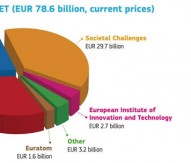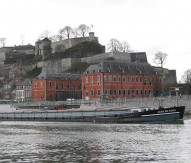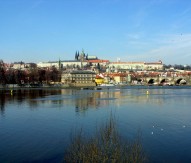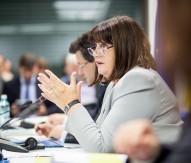
Wallonia: Targeting the horizon
Wallonia forms one of the three regions of Belgium and has a population of over 3.5 million (mainly French-speaking). It has often relayed the traditional industries of iron and coal for the backbone of its economy, although it is now emerging as a centre for glass production, cyclotron and aviation parts.
Jean-Marc Nollet became vice president of the Walloon Government (in addition to Minister for Research) in 2009 and helped launch Horizon 2020 regionally during October 2013. In an interview with Horizon2020Projects.com, Nollet spoke about the growing importance of RDI to Wallonia, the government’s innovation strategy and encouraging SMEs to take part in the new framework programme.
How important is EU RDI funding to Wallonia, particularly in review of FP7 and Horizon 2020?
We are still collecting the final results for FP7, but we expect Wallonia to see a return of roughly €200m over the last seven years. As we consider our natural share to be around €150m, we can be happy with this result. In order to reach our target, we can count on strong networks to inform the potential participants and on the large openness of our economy. Being a relatively small region forces us to collaborate with our direct neighbours and with many other partners across Europe and beyond. This openness brings us opportunities of common research works, as project leaders, partners or sub-contractors. Another point of pride is the above EU-average success rate for Walloon partners, showing the high quality of research proposals.
We see Horizon 2020 as a new field of opportunities, the reorganisation into three pillars fits us well and it should allow us to be as successful compared to FP7. We are busy organising ourselves to face the new rules for participation, strengthen our communication strategies, and support our Walloon participants to the coming calls for projects.
How would you define successful participation in Horizon 2020?
A fruitful participation to the new framework programme would be to see a higher number of Walloon partners, with more SMEs participating in Horizon 2020 calls and receiving finance. We would be satisfied to see our operators confirming their integration into a tied international network of high level competencies. We will work intensively to see, at European level, more new products coming onto the market and being able to say for each of them, that part of this success is due to a Walloon partner. With a special focus on eco-innovation, we hope to re-orientate our production and consumption patterns into a sustainable way. We want, amongst other measures, active participation in Horizon 2020 to allow our region and our country to join the restricted club of innovation leaders in Europe.
We want to step-up efforts to promote different kinds of innovation. Innovation is not only a technological matter – it is also creative and social. The Innovation Union describes social innovation as: “An important new field which should be nurtured. It is about tapping into the ingenuity of charities, associations and social entrepreneurs to find new ways of meeting social needs which are not adequately met by the market or the public sector.
“It can also be about tapping into this same ingenuity to bring about the behavioural changes which are needed to tackle the major societal challenges, such as climate change.”
Innovation policies will need the contribution of humanities and social sciences to transform the way we produce and consume, and to implement social innovation. Regionally, I am proud to have launched the first calls for proposals for social innovation in Wallonia. There are 24 projects submitted and international experts are evaluating these plans; we will know the results later this month.
Jean-Marc Nollet




